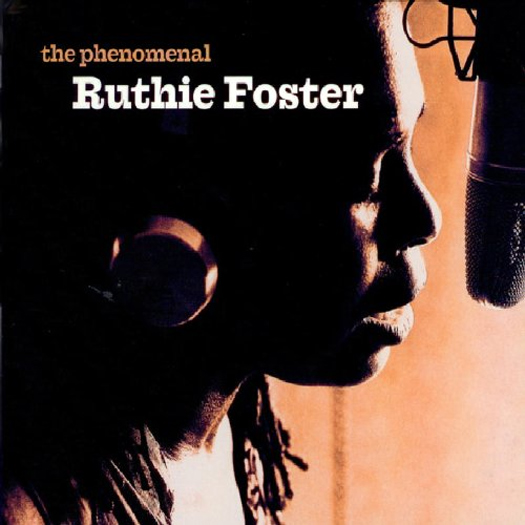Ruthie Foster – The Phenomenal (Blue Corn Music)
Eric Bibb – Get Onboard (Telarc Blues)
Both of these albums, Eric Bibb’s “Get Onboard” and Ruthie Foster’s “The Phenomenal…,” although delivered differently, incite shouts and whoops from their listeners. Following the success of her live album, “Stages,” folk-blues-gospel singer-songwriter Ruthie Foster returns with a flaming good record. One listen to “The Phenomenal Ruthie Foster” and you will hear where the Aretha Franklin comparisons derive. Yet, Foster leans closer to raw folk and blues roots than Franklin did. And it is mostly on the more gospel-blues numbers such as “Heal Yourself” and the title track when Foster wails with the best of them, do you hear the Franklin comparisons.
Foster shows up with a mind and voice of her own. She never minces words in her own songs and when she covers the work of others, she some how makes those songs seem like they came from her own flesh and blood. Similar to a Portuguese fadista or a flamenco vocalist, Foster sings from the gut, but combines her vocals with passion that comes sometimes from a broken heart. The experience can only be called cathartic and any listener who has suffered a similar heartbreak will hop on board. I can just here all the “uh-hum, you tell it like it is, sister,” in the background while these songs play.
The production with heavy on electric organs and acoustic guitar sound 70s. This music leans also heavily towards blues-soul-gospel. Lap steel guitar, strings, harmonica, vibes, conga, Wurlitzer and Hammond B3 organ all find a home on this album. But what stands out are Foster’s strong lyrical penmanship and that powerful voice. It just goes and goes, growing stronger with each phrase Foster belts out. In that regard, she also recalls Janis Joplin.

Eric Bibb’s 2008 recording, “Get Onboard” could be coined “blue age.” He also composes songs that fit into a variety of genres, something he shares in common with his friend, Foster. He opens the album with a mantra, “Spirit I am, Spirit I am…” and listeners of this song might just feel that they are showing up at a yoga kirtan or hanging out in a new age bookstore. It wears away any bad mood.
“Get Onboard” has a similar effect, but it’s more of a gospel piece than a mantra. “Stayed on Freedom” could have been shouted out at Civil Rights marches during another era. And no doubt this is a holdover from that era in which Bibb’s famous father Leon Bibb and Godfather, the famous jazz performer and activist Paul Robeson were vocalizing their progressive views on peace and justice. When listening to songs like “Stayed on Freedom” I can almost feel the late Martin Luther King, Jr. standing in the corner of the room nodding his approval. Bibb’s does not believe in wasting words and like a griot, he chooses his words carefully in order to deliver a powerful message. (Barrack Obama should add these power songs to his campaign).
The whimsical love song, “Pockets” features Bibb’s lilting finger picking in which he again focuses on the positive. And believe it or not, there are some positive blues musicians abound from Taj Mahal, to Corey Harris, Ruthie Foster, and the Norwegian Knut Reiersrud to name a few.
We might just be looking at an new era of American folkroots music that combines 21st century new age thought (you create your own reality with your words), with old musical traditions and even a bit of griot magic. Whether we have reached that point or not, Bibb’s “Get Onboard” and Foster’s “The Phenomenal Ruthie Foster” certainly causes me to jump onboard the love train, peace train or whatever train will take me to a better place.
Patricia Herlevi hosts the blog, The Whole Music Experience and the community radio show, Global Heartthrob at KSVR-Mount Vernon. She also contributes to World Music Central and “A & E Monthly” (Skagit Valley, Washington).


